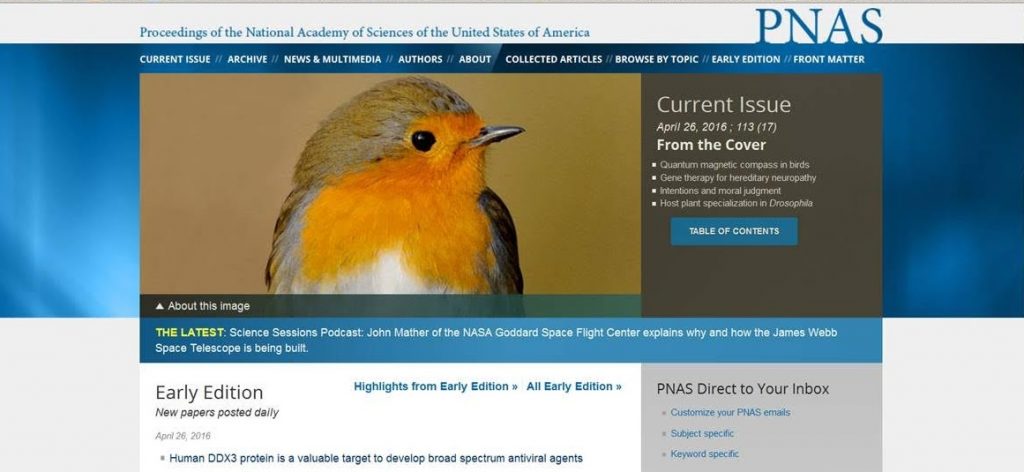Publication of our Antiviral Research in PNAS
In the week of April 25th 2106, PNAS will publish the article: “Human DDX3 Protein: a New Valuable Target to Develop Broad Spectrum Antiviral Agents” describing part of the antivirus research performed by collaborating groups in Italy and Spain.
The subject of this publication is of significant importance because it describes – and presents proof of – the completely novel and highly effective cell biological working mechanism of our RNA Helicase inhibiting antiviral technology. The article addresses the efficacy of our compounds against several viral pathogens such as HIV, Hepatitis C, West Nile and Dengue virus, with specific interest for multiple Anti Retroviral Therapy resistant HIV strains, as well as the absence of toxicity verified in both in-vitro and in-vivo assays. PNAS, “Proceedings of the National Academy of Sciences of the United States of America”, is one of the most renowned and most high cited peer reviewed scientific journals in the world, and we made arrangements so that the article is freely available to all readers in open access. You will find it here on the website of PNAS

The importance of our research for the development of new HIV medications resides in the following properties of our DDX3 RNA Helicase inhibitors
- Targeting HIV within cells that are already infected (RNA Translation Inhibition)
- No resistance development possible by viral proteins
- Proven efficacy against all HIV-1 strains, including all ART resistant strains
- Very low toxicity, both in-vitro and in-vivo
- Possibility to be integrated in existing HAART strategies
- Good penetration in HIV reservoir zone such as CNS and testis
- Possible use in combination with wake-up strategies
- Potential use against frequently occurring viral co-infections such as HCV
Besides for HIV, the significance of the research described in the publication also applies to the following viruses
- Good efficacy against Dengue Virus, an expanding virus against which no antiviral treatments are available. Severe Dengue has Ebola-like haemorrhagic fever symptoms and can be lethal
- Good broad spectrum activity against several other Arbo viruses (spread by [Tiger] mosquitoes).
- Good efficacy against Hepatitis C, which by itself and on co-infection with HIV is a valuable target for which no cost effective therapies are available.
First Health Pharmaceuticals B.V. is fully committed to ongoing investigations into the in-vivo distribution, metabolism, efficacy and (absence of) toxicity of our RNA Helicase inhibitor platform. The antiviral reference compound 16d, discussed in the publication is one of our reference benchmark compounds for which substantial comparative research is already available. For this reason we often select this structure for purposes of scientific publications. However 16d is not our most effective or least toxic compound. More recent generations possess significantly improved qualities over 16d. This does of course not in the least diminish the excellent and very promising results of the research published by PNAS.